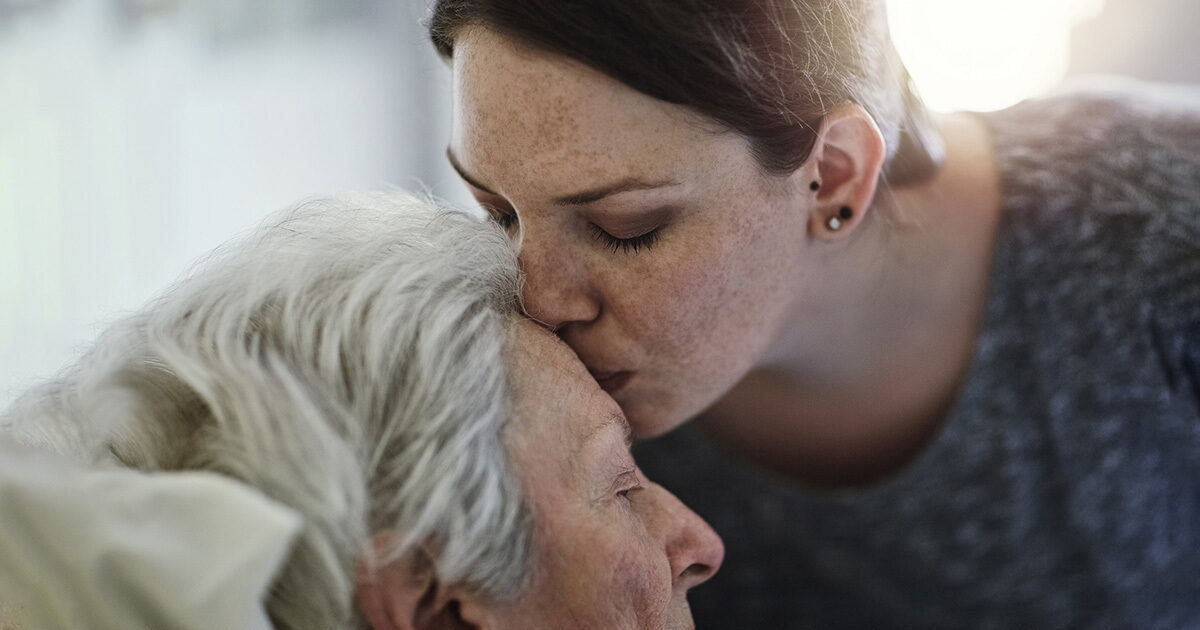New Assessment Tool Promotes a More Personalized Approach to Dementia Caregiver Support
UT Health Austin’s Comprehensive Memory Center seeks to better understand the individual needs of those caring for loved ones with dementia
Reviewed by: Alyssa Aguirre, MSW, LCSW-S, and Anna Finger, LCSW
Written by: Lauren Schneider

An article published in the March 2024 issue of the Clinical Social Work Journal reviews a new assessment tool developed and tested by UT Health Austin clinician-researchers in the Comprehensive Memory Center within UT Health Austin’s Mulva Clinic for the Neurosciences. This evidence-based assessment tool, known as the Caregiver Outcomes of Psychotherapy Evaluation (COPE), aims to improve how clinicians identify and support the needs of individuals caring for a loved one with Alzheimer’s disease or related dementias.
“In recent years, the field of health social work has increasingly recognized family caregivers as vital members of their loved one’s care team who also need support,” shares Alyssa Aguirre, MSW, LCSW-S, a licensed clinical social worker in the Comprehensive Memory Center who also serves as the Assistant Director of Dementia Care Transformation in the Dell Medical School Department of Neurology.
“Demands on caregivers of individuals living with dementia are enormous, and there remains a significant lack of measurement tools for health social work clinicians to evaluate caregiver well-being in medical settings,” adds Aguirre. “Our intention with this tool is to capture a caregiver’s personal priorities so that we can offer the most appropriate counseling, mental health, and support services to help meet those goals.”
Explore services available to dementia caregivers through the Comprehensive Memory Center.
<br>Understanding Each Caregiver’s Unique Goals
The Caregiver Outcomes of Psychotherapy Evaluation (COPE) measure evaluates multiple dimensions of a caregiver’s experience before and after they receive interventions, such as counseling, to assess and monitor their individualized needs.
Topics covered in the COPE assessment include:
- Ability to plan for the future
- Confidence in facing future challenges
- Confidence in one’s caregiving abilities
- Emotional well-being
- Enjoyment of life
- Knowledge about dementia
- Support from others
Because the COPE measure encompasses so many aspects of dementia caregiving, the assessment offers practitioners a more holistic view of a caregiver’s individual needs.
“Existing evidence-based interventions for caregivers tend to focus on the negative aspects of caregiving, such as anxiety and caregiver burden,” says Aguirre. “We set out to create a tool that captures the more practical and positive aspects of caregiving.”
“In our experience at the Comprehensive Memory Center,” notes Aguirre, “we have found that caregivers are interested in addressing their emotional health needs, but they also have caregiving goals extending beyond that.”
Learn how to identify and manage caregiver stress.
<br>“As health social workers, we strive to focus on an individual’s strengths and establish support systems for them to help address, rather than dwell on, the challenges they may be facing,” shares Anna Finger, LCSW-S, a licensed clinical social worker in the Comprehensive Memory Center who also serves as a part of UT Health Austin’s Health Social Work care team.
Often, when a patient is diagnosed with dementia, their healthcare provider may only offer the caregiver with basic background information about their loves one’s condition and the immediate next steps needed to keep the patient medically stable.
“There is not much time during these medical visits for the caregiver to receive further education about the condition or follow up with more specific questions about their own needs for support or care planning,” explains Finger. “Other common themes expressed by caregivers include the desire to connect with support groups, curiosity about protecting their own cognitive health, and the need for assistance with legal, medical, or financial planning for their loved one. These are all areas of support that we offer to caregivers of patients at the Comprehensive Memory Center.”
Learn the signs of dementia-related financial issues and how you can protect your loved ones.
<br>Laying the Groundwork for an Individualized Model of Care
When developing the COPE measure, the clinical research team engaged with caregivers in the community to learn more about their priorities and interests and incorporated feedback from other dementia care professionals. They are now preparing for a second phase of COPE’s development, during which they will invite additional caregivers to complete the assessment to see how it compares to existing measures.
This research, led by Aguirre at the Dell Medical School COPE Lab, aims to identify best practices for supporting dementia caregivers by leveraging real-world insights from the team’s clinical experiences.
“Our clinical work informs our research, and research informs our clinical work,” explains Aguirre. “Recognizing this gap in clinical care, we developed a research study to guide the design of this new tool, which we believe will be highly beneficial for practitioners.”
Learn how the Comprehensive Memory Center is transforming dementia care through interprofessional collaboration.
<br>In addition to capturing a more nuanced picture of the dementia caregiver experience, the team designed the COPE tool to be convenient to administer and easy to interpret, with the goal of helping other clinical practices better serve the needs of dementia caregivers.
“On a national scale, there has been a greater focus on caregiver well-being in recent years,” observes Finger. “There is a great opportunity for tools like COPE to be more widely utilized so providers know how to best support these individuals.”
“As the cultural conversation about dementia caregivers gains traction, it is important for the caregivers themselves to have a voice,” adds Finger. “This assessment will help us better understand what caregivers have to say.”
Learn more about UT Health Austin’s commitment to establishing lasting connections with patients and caregivers.
<br>For more information about the Comprehensive Memory Center or to request an appointment, please call 1-833-882-2737 (1-833-UT-CARES) or visit here.